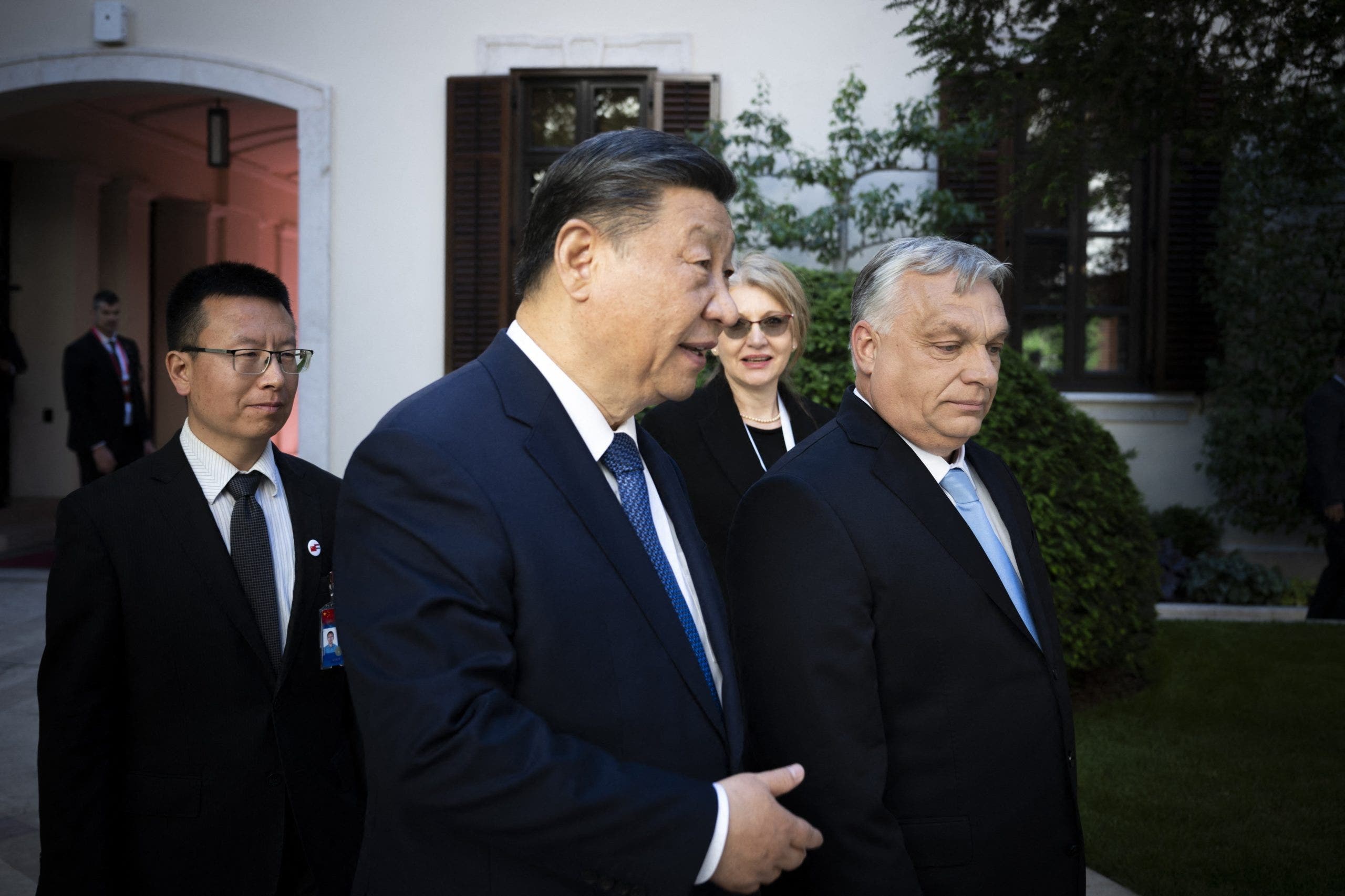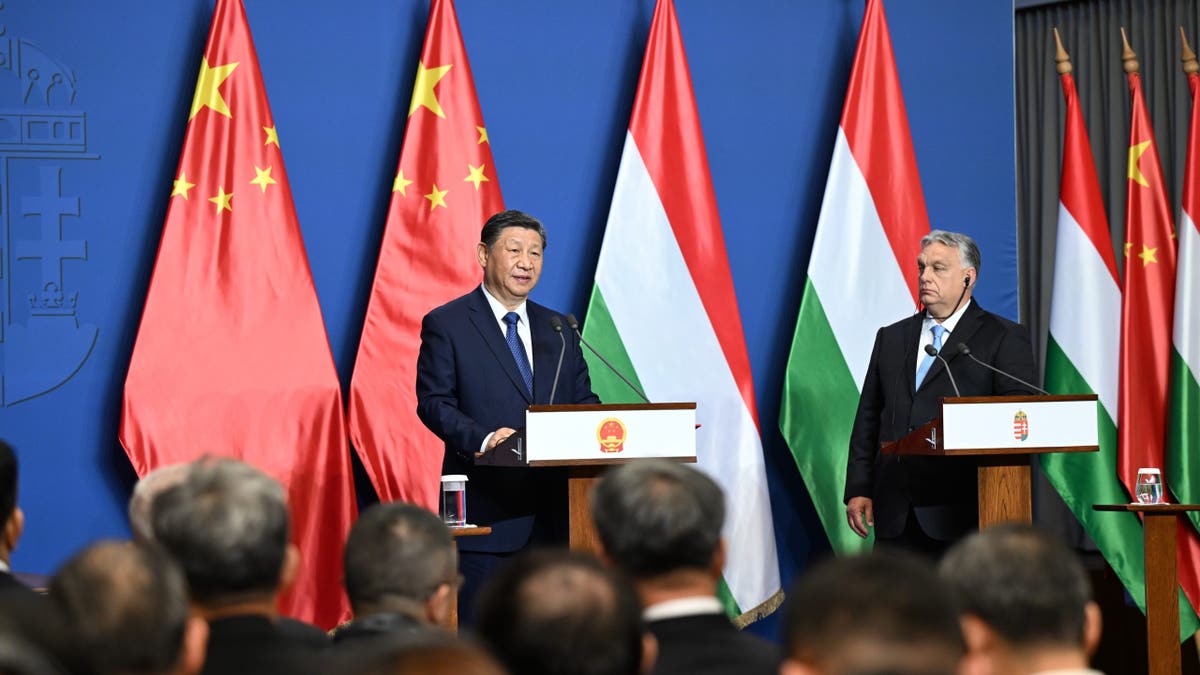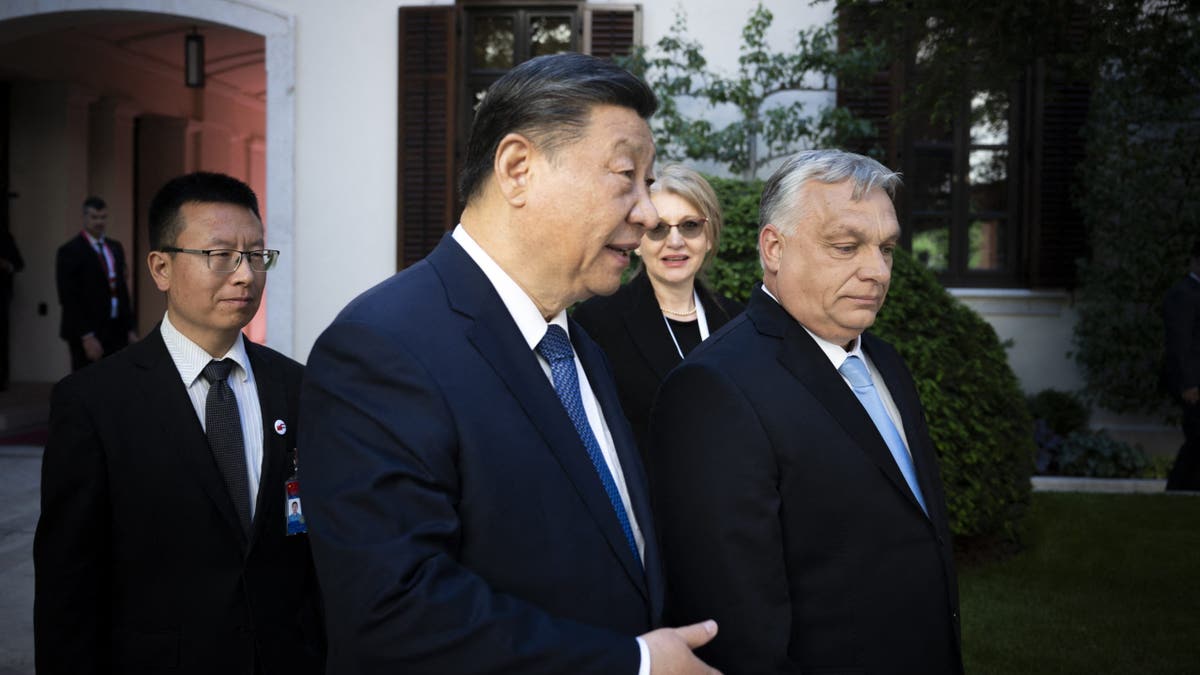


The visit between Chinese President Xi Jinping and Hungarian President Viktor Orban ended with glowing praise from both parties as Xi labeled his counterpart a “model” for diplomatic relations with Europe, while Orban endorsed Beijing’s Ukraine peace plan.
“Today, Europe is on the side of war,” Orbán said Thursday during a joint press conference.
“The only exception is Hungary, which calls for an immediate ceasefire and peace negotiations and supports all international efforts that point towards peace. . . . We also support the Chinese peace initiative presented by Xi Jinping,” he added.
Hungarian Foreign Minister Peter Szijjarto added that Hungary will “look at our co-operation with China as a huge chance and a huge opportunity.”
US COMMITTEE PROBES GEORGIA UNIVERSITY’S ALLEGED TIES TO CHINESE MILITARY-LINKED RESEARCH
China has sought to reset its standing with Europe as it faces greater opposition and a worsening reputation throughout the bloc. Winning a kind word from Hungary, which is not only an EU member but a NATO member as well, would seem the kind of PR boost Beijing has wanted.
Supporters of China hold Chinese flags in Buda Castle close to the route of Chinese President Xi Jinping’s motorcade prior to the Chinese President’s meeting with Hungarian Prime Minister Viktor Orban on May 9, 2024, in Budapest, Hungary. The Chinese President pays a three-day official visit to Budapest from the evening of May 8, 2024. (Attila Kisbenedek/AFP via Getty Images)
Xi’s five-day stint in Hungary — just one of three visits Xi is making in Europe — ended with a proclamation of China and Hungary’s “all-weather comprehensive strategic partnership for the new era,” which officials claim will serve “more than mere semantic importance,” according to the Financial Times.
The “all-weather” designation indicates that Xi considers Budapest now a member of “those countries that do most to support China’s efforts to counter U.S. power and which are increasingly rewarded with investment, trade and diplomatic support,” the FT reported.
US OFFICIAL RAISES ALARM OVER FORCIBLE REPATRIATION OF NORTH KOREANS FROM CHINA
The two nations agreed to 17 deals that loop Hungary into China’s ongoing Belt and Road Initiative and involve investment in nuclear energy, supply chain improvements, green development and boosts to the finance and trade of Hungary, which will in return export agricultural products, technology and media services.

Chinese President Xi Jinping and Hungarian Prime Minister Viktor Orban jointly meet the press after their talks in Budapest, Hungary, May 9, 2024. (Xie Huanchi/Xinhua via Getty Images)
Xi also lauded the deals as helping to bring cooperation between Beijing and Central and Eastern Europe to “a wider scope, a broader field and a higher level.”
“China attaches importance to the China-EU comprehensive strategic partnership and considers Europe an important pole in the multipolar world,” Xi said of the agreements. “China supports Hungary in playing a greater role in the EU and promoting the new and greater development of China-EU relations.”

Chinese President Xi Jinping (L2) talks with Hungarian Prime Minister Viktor Orban (R) prior to their official talks in Carmelita Monastery, the prime minister’s headquarters, at Buda Castle quarter in Budapest, Hungary on May 9, 2024. (Vivien Cher Benko/POOL/AFP via Getty Images)
The South China Morning Post noted that the “all-weather” partnership places Hungary in the company of such Chinese allies as Belarus, Pakistan and Venezuela.
The Chinese Foreign Ministry last year posted a 12-point peace plan, which included a number of points that many agreed with, such as urging against the use of nuclear weapons, protecting civilians and POWs, facilitating grain exports and promoting reconstruction.
However, the plan also called for the end of unilateral sanctions and “maximum pressure,” insisting that only sanctions authorized by the U.N. Security Council should go into effect.
“Relevant countries should stop abusing unilateral sanctions and ‘long-arm jurisdiction’ against other countries, so as to do their share in de-escalating the Ukraine crisis and create conditions for developing countries to grow their economies and better the lives of their people,” the plan said.
Foreign Policy last year published an op-ed by Jo Inge Bekkevold, a senior China fellow at the Norwegian Institute for Defense Studies, criticizing China’s peace plan as having “ulterior motives.”
CLICK HERE TO GET THE FOX NEWS APP
For example, China would seek to “position itself in the reconstruction of postwar Ukraine…. [it] explicitly states that it stands ready to provide assistance and play a role in post-conflict reconstruction,” though Bekkevold admits that “no other country is possibly better equipped than China to assist in rebuilding Ukraine.”
“Welcoming Chinese assistance, expertise and investments must be a tempting proposition for Ukraine,” Bekkevold wrote. “Seen from Beijing, contributing to the reconstruction of Ukraine would strengthen China’s overall engagement with Europe.”